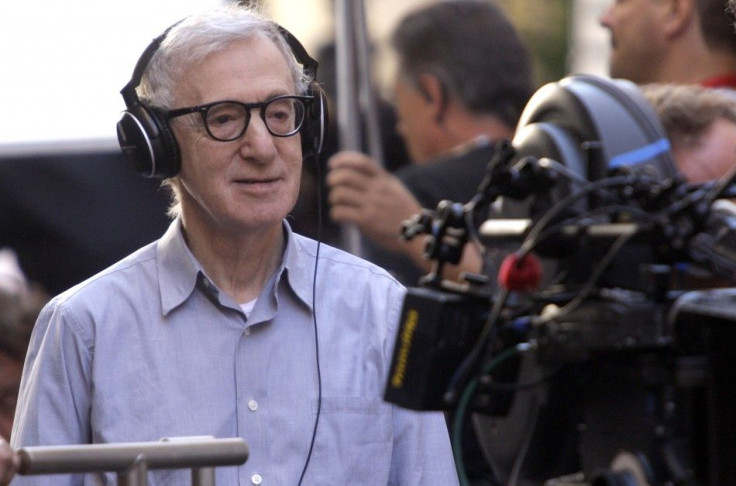Oscar Nominations 2012: Academy Voter Reveals Thoughts on Possible 'Midnight in Paris' Upset

In anticipation of Sunday's Academy Award ceremony, IBTimes has been analyzing each Best Picture nominee's chance of winning the Oscar. Today, we have a very exciting discussion with a USC researcher and Academy of Arts and Sciences member who thinks Midnight in Paris might have a shot in the dark.
While most will probably agree that Midnight in Paris is not Woody Allen's heaviest-hitting film, it's one of his most delightful to watch -- and despite its flaws, impossible to dismiss. Allen's deeply personal homage to the City of Lights and a bygone golden age of literature and art was well received by popular audiences and critics alike: It took in nearly $60 million at the box office and has a 93% rating on Rotten Tomatoes.
Still, Midnight in Paris hasn't been associated with much in the way of Best Picture buzz -- largely due to the position of another longing nod to the past, The Artist, as the solid frontrunner.
While very few are expecting a dramatic upset in the Best Picture category, researchers at the University of Southern California have found that Midnight in Paris would have a real shot at winning the Oscar if it were chosen by popular vote.
The Oscar Senti-meter is an analysis tool developed by the USC Annenberg Innovation Lab, IBM, and the Los Angeles Times to measure public sentiment about the Oscar nominees through Twitter messages.
Professor Jonathan Taplin, Director of the Annenberg Innovation Lab, spoke to IBTimes about the Oscar Senti-meter and how seriously it should be taken as a prognosticator.
We started measuring sentiment on movies in late May, Taplin said. At first we were using it to try and predict box office results, which was very successful. Then the Los Angeles Times came to us and proposed this idea of [measuring] what was the vox populi on the Oscars.
Using technology provided by IBM, a partner in the project, the Senti-meter looks at two primary variables: The amount of tweets about a particular film, and the sentiment expressed in the tweet.
It's extraordinarily fast, Taplin said, explaining that the program analyzes about half a million tweets a day. The results are tracked daily on a dynamic line graph that indicates the quantity of tweets about a particular nominee, and the relative positive or negative charge of the messages.
The USC researchers developed language ware tools in order parse the sentiment of individual tweets. Of course, the hardest part of that was dealing with sarcasm, Taplin said. It requires a lot of human intervention.
During the first phase of the project, Taplin enlisted students at USC to annotate the messages and compare their results with the computer's. They would say the computer's wrong here, it's right there...and then the annotation would help teach the computer when it was wrong. And slowly, the natural language processing program got smarter and smarter, Taplin said.
It learns things like emoticons, and it learns things like when you put a word in quotes and it means just the opposite of what the word says.
Taplin couldn't provide any hints about which way he voted this year, but offered his insight about Academy voting patterns of the past.
The Academy demographically...skews very old, Taplin said, adding that he is 65 himself. I can tell you last year I thought David Fincher's picture 'The Social Network' was the best picture by far, in terms of the way it was made, the theme, everything. But older people in the Academy [either] don't know about Facebook, or if they do, they don't like it. They don't like the idea of people sharing their whole lives.
So I think just thematically, they rejected it.
Taplin agreed that in this year's nominee pool, there aren't any films that could be automatically disqualified on the same grounds that The Social Network might have been.
I don't think any of them have that kind of Fincher edge, Taplin said. But he also noted that The Girl with the Dragon Tattoo has been a top performer on the Oscar Senti-meter, as the research team chose the films to analyze months before the Oscar nominations were announced.
We left all the potential pictures on the [data chart], just for fun, Taplin explained. And you'll notice 'The Girl with the Dragon Tattoo' has consistently high sentiment, and a fairly large amount of tweets.
Again, Fincher's movies are very dark and hard-edged, and there's never any real heroes in the classic Hollywood sense, so I don't think they're necessarily Oscar-winning movies. But clearly the public appreciates them.
And while Hollywood types might appreciate a Woody Allen film over a David Fincher movie, we understand the Academy is a very specific group of 4,000 people, Taplin said. We're just saying ['Midnight in Paris'] is what the public thinks should be the Best Picture...Often those don't jive.
Allen's chronic absenteeism could easily work against him in the mind of Academy voters, who were required to submit their picks by Feb. 21.
If Woody Allen was the kind of person who would actually show up at the Oscars, there might be a better chance for him, Taplin joked.
The last time he won the Best Picture [Oscar] he didn't even bother to show up...and I doubt that he'll show up this time, he continued. Of course the Academy knows that.
<a href=http://polldaddy.com/poll/5977015/ mce_href=http://polldaddy.com/poll/5977015/>Do you think Midnight in Paris will win the Best Picture Oscar?</a>
© Copyright IBTimes 2024. All rights reserved.












